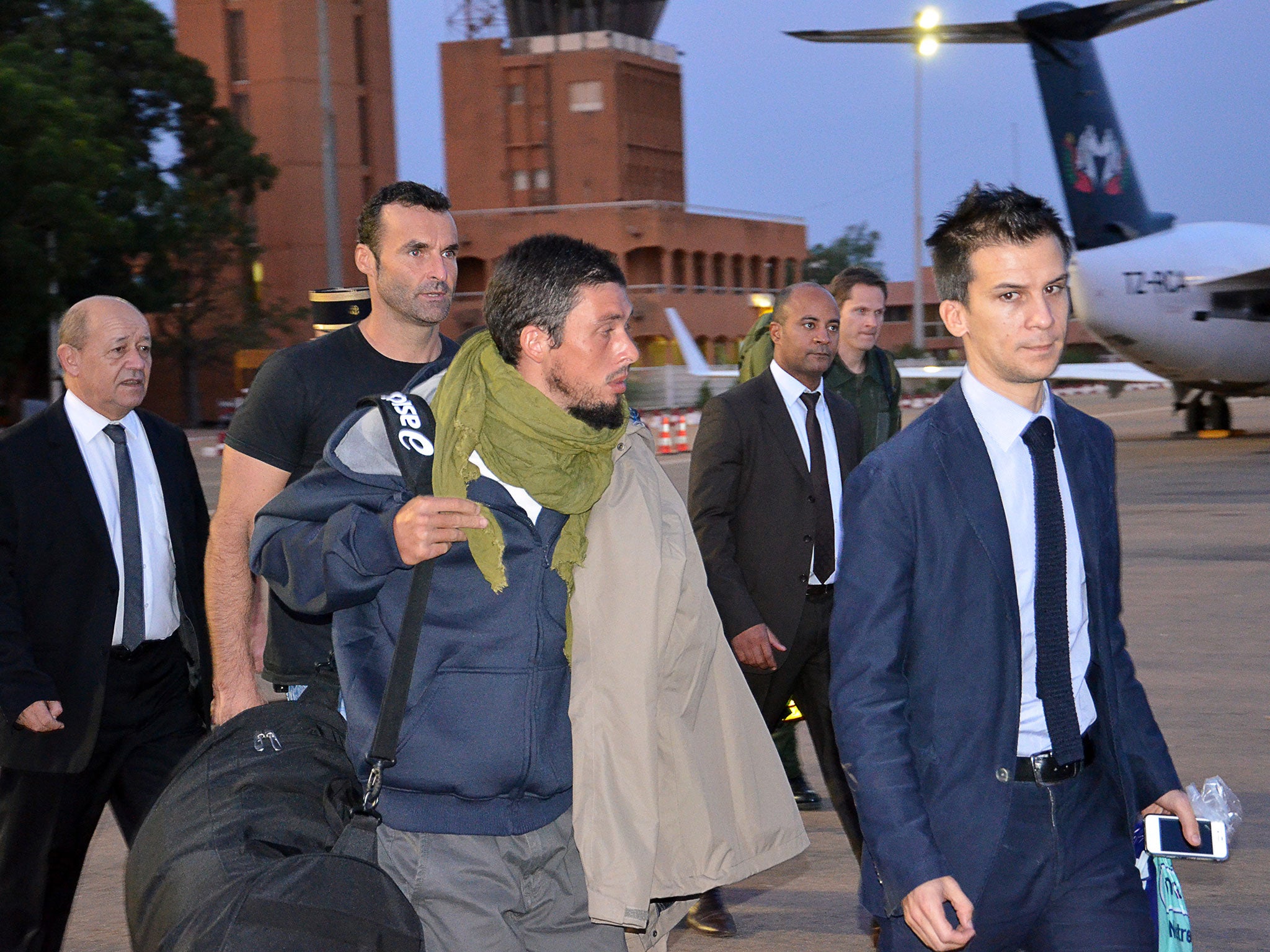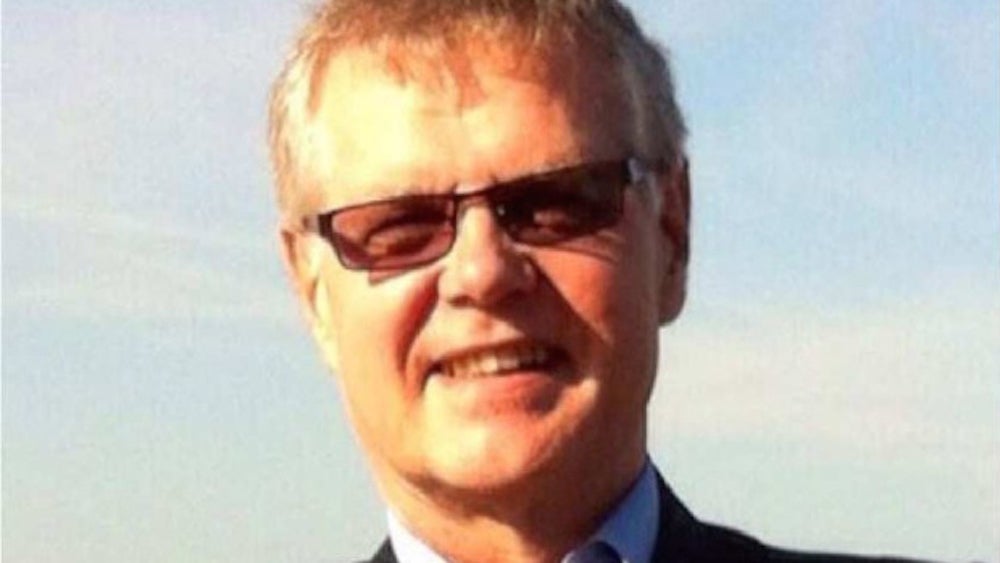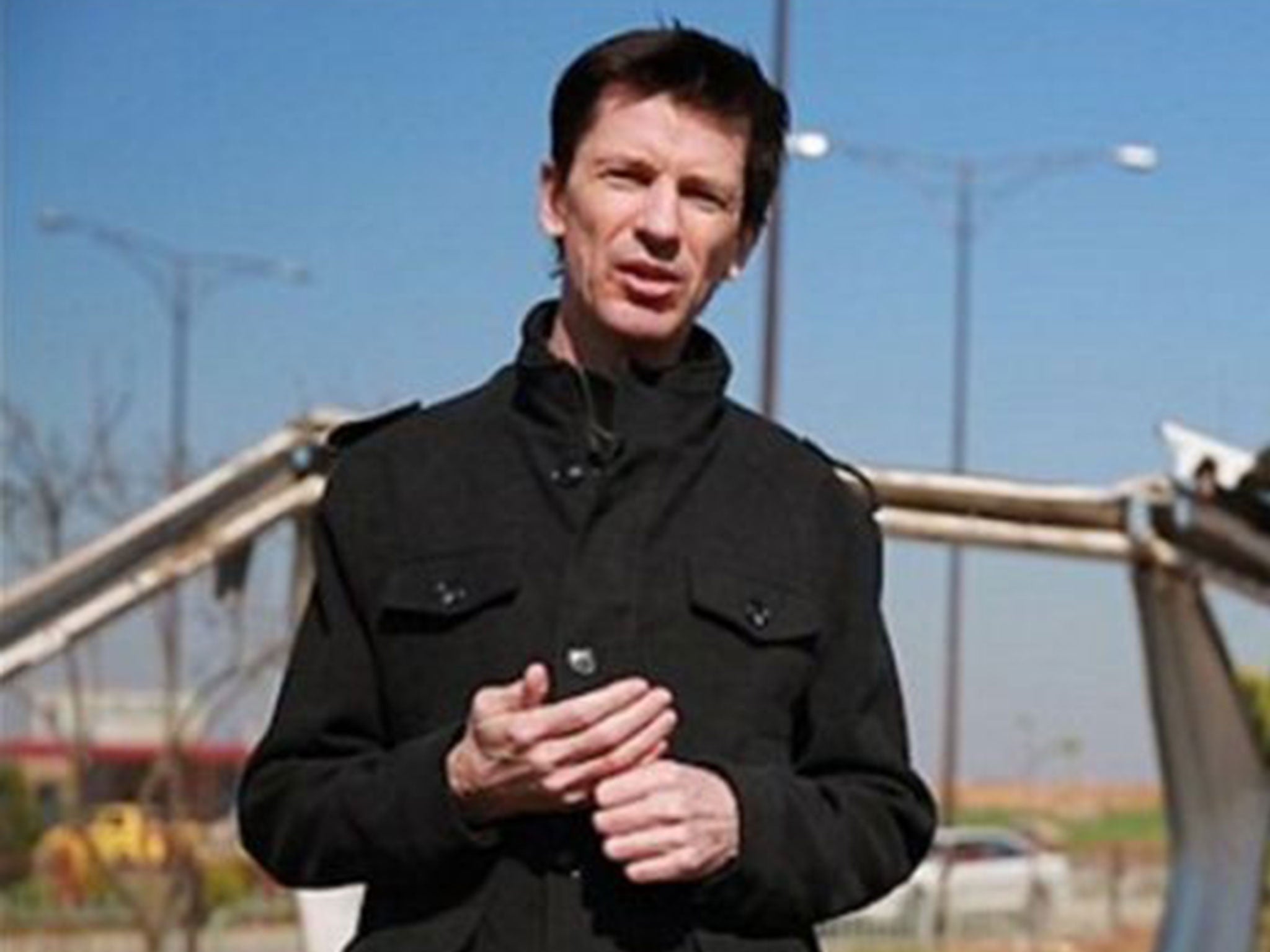Canada and Britain campaign to stop allies from paying ransom for hostages
UK, Canada and US insist they have never strayed from the policy of refusing to pay ransom, but this has meant that on occasions their citizens have been killed while those of other states were released

Your support helps us to tell the story
From reproductive rights to climate change to Big Tech, The Independent is on the ground when the story is developing. Whether it's investigating the financials of Elon Musk's pro-Trump PAC or producing our latest documentary, 'The A Word', which shines a light on the American women fighting for reproductive rights, we know how important it is to parse out the facts from the messaging.
At such a critical moment in US history, we need reporters on the ground. Your donation allows us to keep sending journalists to speak to both sides of the story.
The Independent is trusted by Americans across the entire political spectrum. And unlike many other quality news outlets, we choose not to lock Americans out of our reporting and analysis with paywalls. We believe quality journalism should be available to everyone, paid for by those who can afford it.
Your support makes all the difference.Canada and Britain will campaign to stop Western allies from paying ransom for hostages, with Justin Trudeau declaring that he and David Cameron have agreed to stress to international leaders how such deals empower terrorists and invite more kidnappings.
The Canadian Prime Minister spoke after one of his countrymen, John Ridsdel, was beheaded on Monday in the Philippines by the Islamist group Abu Sayyaf just a few hours after the deadline for delivering money in return for his life ran out.
Two others abducted along with 68-year-old Mr Ridsdel, fellow Canadian Robert Hall and Kjartan Sekkingstad - a Norwegian who had been living in Canada - last September are still being held by the group which wants an autonomous Muslim state in the largely Catholic Philippines.

The issue of paying ransom is a highly emotive and controversial one for Western states and the very fact that Mr Trudeau is trying to engage with allies on this illustrates how existing agreements have failed in presenting a unified approach.
In 2012 the G8 group of countries issued a statement saying it was repugnant to reward hostage takers. But just a few months later the then French foreign and defence ministers, Laurent Fabius and Jean-Yves Le Drian, were reported to be on the tarmac in Niamey, the capital of the African state of Niger, to welcome four employees of the nuclear firm Areeva who had been captive for three years. The Elysee Palace was forced to deny repeated claims that a ransom of €30 million was paid to secure the men’s release.
Mr Trudeau maintained that Canada does not pay ransom to terrorists and added that he and Mr Cameron “agreed that it is something that we are going to make sure we do bring up with our friends and allies around the world.”
The Isis jihadist group that murdered the American journalist Jim Foley and four others, all US and UK citizens, in 2014, had freed four French and three Spanish journalists earlier in the year as well as an Italian aid worker and a German national. John Cantlie, who is British, remains a prisoner but has been coerced into making jihadist propaganda videos.

There were reports of the French government paying out a sizeable sum for their nationals. Mr Le Drian, it was claimed, had personally carried $18 million to the Turkish capital, Ankara, for the transaction. The claim was denied by the French government. The Spanish government refused to comment on whether money had changed hands; a foreign ministry spokeswoman in Madrid denied claims that it had paid €6 million for their national. The Italian government denied reports in the country’s media of making an undisclosed ransom payment for the aid worker.
Speaking at the Nato summit in Newport, Wales, in 2014, Mr Cameron declared to partner states: “What matters is not your signature on a declaration [G8], but not letting money be paid to terrorist kidnappers because the money goes into arms, into terror plots, more kidnappings… It is actually a risk at home”.
In June last year the Obama administration indicated that it will change its rules on ransom and hostages. Payment of money to terrorist and criminal groups will still remain prohibited but families of those held will no longer be threatened, as they had been in the past, with criminal prosecution. Government agencies will also be allowed to negotiate with kidnappers on behalf of families and assist family members to do so.
Join our commenting forum
Join thought-provoking conversations, follow other Independent readers and see their replies
Comments